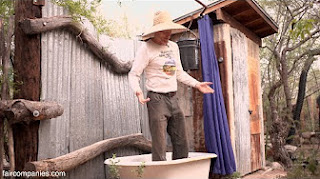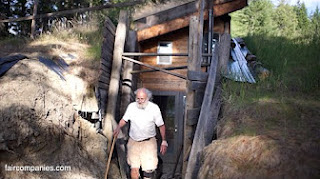Don
-
Category
-
License
- Standard YouTube License
-
-
-
-
-
-
-
-
-
-
-
-
-
-
-
-
-
-
-
-
-
-
-
-
-
-
-
-
-
-
-
-
-
-
-
-
-
-
-
-
-
-
Tracks of an old Frontier shepherd life: Great Basin Basques
Video link...
Today, in states like Idaho there are thousands of Basque Americans many of whose ancestors immigrated here a century ago to herd sheep. Henry Etcheverry is one of the last of the Basque sheepmen. His father, Jean Pierre, immigrated in 1929 from the Basque Country (a region in the Pyrenees partly in Spain and partly in France).
Boise, Idaho has the highest concentration of Basques outside the Basque Country. The Mayor is Basque and there's an entire block dedicated to Basque businesses. Tony Eiguren runs the Basque Market- part store, part restaurant- with his wife Tara. https://www.thebasquemarket.com/
Many of the buildings on the Basque Block were once boarding houses for recent arrivals to the US. "If a person was immigrating over to the United States to Boise for example they'd get off the train a few blocks from here and come to a boarding house," explains Annie Gavica of the Basque Museum (3 of her grandparents were Basque).
Today the Sheepherders Ball is still a popular Boise event (Tony met his wife Tara there) and the Basque Block still has a "fronton", a court for playing Basque pelota, a type of handball played with a bare hand and a hard ball, something "quite painful" according to Gavica. https://www.basquemuseum.com/
At 66-years-old Etcheverry still works his sheep ranch- built up by his father and himself with permits to graze thousands and thousands of acres in Idaho and Wyoming- but these days, his shepherds aren't Basque. "My shepherds are from Peru and this is an opportunity for them to come here and better their lives. They're here and it's quite a sacrifice."
One of his shepherds, Olympio, has spent over a decade working here for Etcheverry. From May to September he lives in a sheep wagon- or sheep camp- in the mountains, following the sheep. Etcheverry brings him food and supplies every few days, but he spends most of his time alone, sleeping, eating and cooking in his tiny home on wheels. He uses a propane burners to cook, firewood stove for heating, a cooler as a refrigerator and washes his clothes by hand. Olimpio says he's used to the lifestyle since he started in the same line of work as a young boy in Peru. He admits it can be lonely, but he points out the advantages of what Etcheverry calls a sacrifice. "It's really beautiful to take care of animals. The countryside is beautiful."
Etcheverry has no luck finding workers in nearby Boise or Salt Lake City. "When this way of life is over for me I doubt there is going to be anyone behind me here. It's too hard. Saturday and Sunday. You do what you got to do. People don't want to do that anymore."
Special thanks to Paul Shin for dancing footage: https://www.youtube.com/channel/UC0M2...






































No comments:
Post a Comment